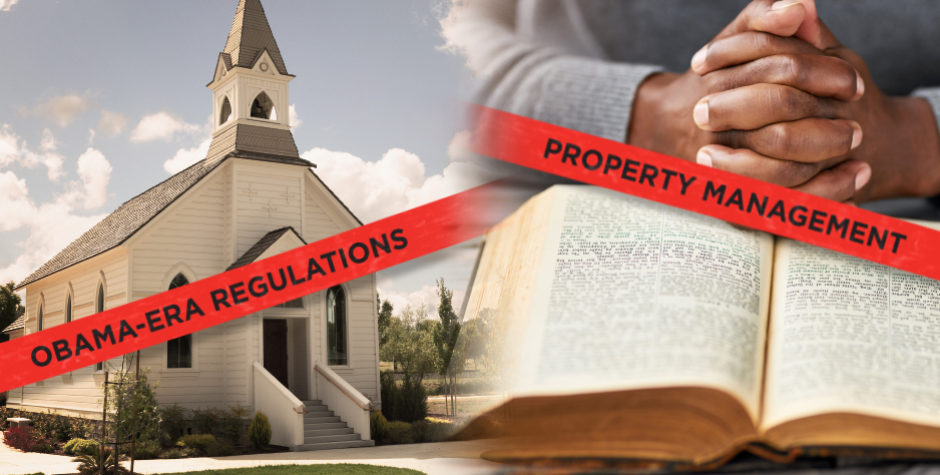HUD Housing Residents Face Ban on Religious Materials and Obama-Era Discrimination Against Faith-Based Organizations – ACLJ Taking Action
At the ACLJ, we are battling to end Obama-era anti-religious liberty rules and blatant religious discrimination.
According to the official website of the Department of Housing and Urban Development (HUD):
Discrimination includes applying different terms or conditions of housing, denying applications or steering or restricting persons to certain neighborhoods or buildings because of their religion.
In the process of buying, selling, renting or engaging in other housing-related transactions, it is illegal to discriminate based on religion.
And yet, a series of regulatory changes made by the Obama Administration are forcing religious organizations and faith-based businesses to jump through unfair, additional administrative hoops to receive federal funding or participate in federal programs.
And just recently, the ACLJ was contacted yet again by residents of housing under the purview of HUD who say the property manager confiscated all Bibles and other religious materials from the housing complex, including those donated by residents.
This ban on the Bible and other religious material in HUD housing is not only unacceptable; it’s unconstitutional.
Our legal team is preparing to send a demand letter directly to the property management company in question, notifying it that a ban on and removal of religious material is a violation of our client’s religious liberty, as well as that of other tenants. It’s a direct violation of federal law. While this act was not done by HUD directly, these property managers work under the purview of the department and must abide by the same anti-discriminatory regulations. In fact, HUD has actually issued specific guidance for housing directors “not to prohibit [religious] displays.”
At the same time, we’re taking on the Obama-era regulations that have forced religious organizations and faith-based businesses to jump through unfair, additional administrative hoops to receive federal funding or participate in federal programs.
Recently we informed you that, pursuant to two Executive Orders, the Trump Administration issued new rules across nine federal agencies to ensure that religious organizations and faith-based businesses are treated equally under the law. The new rules would also remove unconstitutional forced referral and notice requirements put in place by the Obama Administration exclusively affecting faith-based organizations.
That is clear discrimination, no matter what lens the Left tries to obscure it with.
As we told you, eight of those agencies opened up their public comment period on January 17, 2020, and we recently submitted our public comments to those agencies. We gave you the opportunity to join us by filing your own public comments, and many of you did.
The deadline for the ninth agency, HUD, is coming up in just a few days – April 13th.
The Trump Administration has proposed new rules to end this blatant religious discrimination at HUD. Faith-based businesses and religious organizations shouldn’t be subject to a separate set of rules because of their faith.
In addition, we also want HUD to make it clear to property managers of public housing that religious materials and symbols should never be banned.
Now HUD has officially opened its public comment period regarding the President’s proposed rules, and as such, our legal team is preparing to file the ACLJ’s official legal public comments, which you can join by signing the petition below.
But as we’ve asked in previous cases, we need you to submit your own comment directly to HUD. You have a unique opportunity to have your voice heard. We’ve even prepared a draft for you.
You can stand with us and defend religious liberty by joining on to our comment supporting the new rules below. And you can submit your own comment directly to HUD here.
UPDATE 04.13.2020: We have just filed our official public comment to HUD in support of the this religious liberty rule to ensure that churches and other religious organizations are not treated differently from other organizations. We will continue fighting for our clients who are experiencing religious discrimination.
